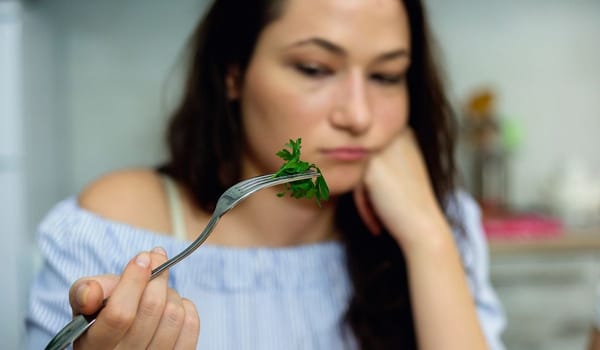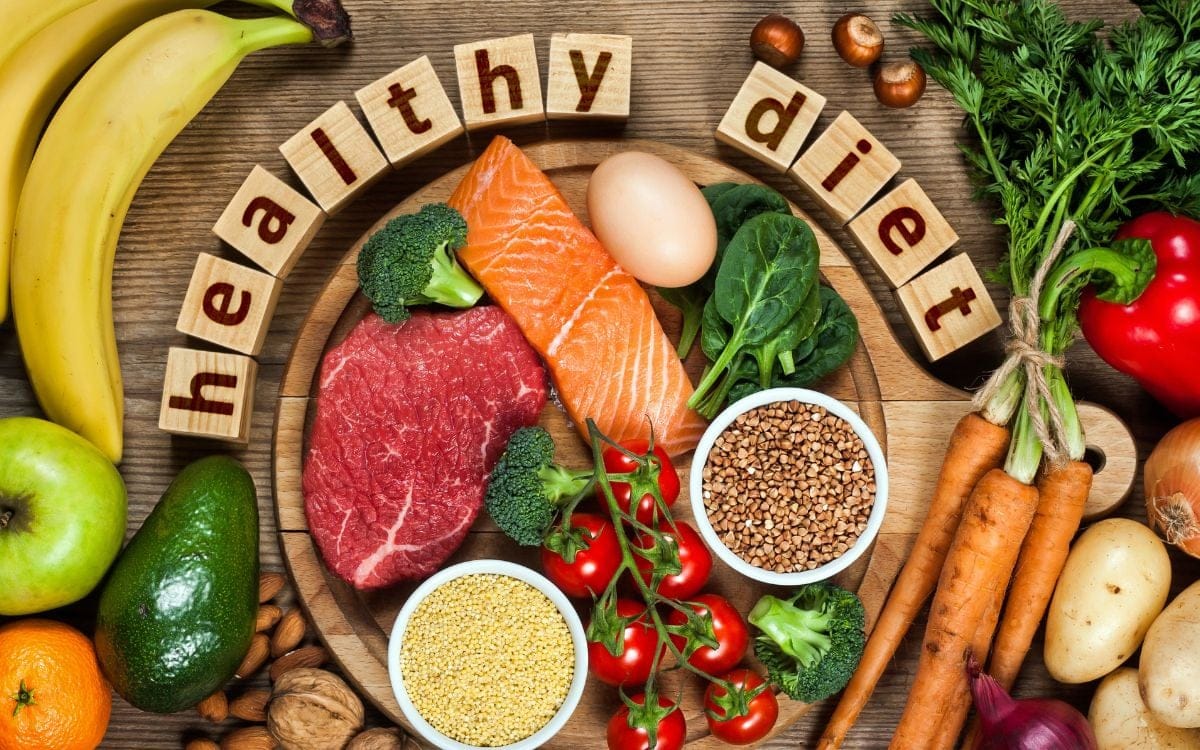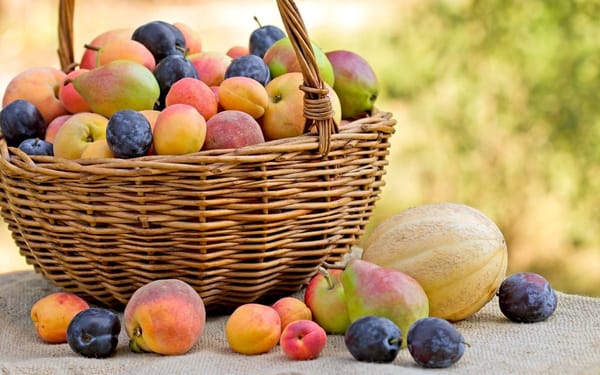Why diets don’t work but eating intuitively does
Paleo, keto, vegan, DASH, or eating for your blood type – the diet and weight loss industry is worth more than $70 billion. And even though 95% of diets fail, it’s thought that most adults will try more than 120 of them in their lifetime.
Dieting isn’t just ineffective, it’s also damaging – with studies showing it’s far better for your mental and physical health to ‘accept’ your body as it is than to stay on the binge/restriction cycle. Although we’re told that a bigger body size leads to a higher risk of things like heart disease or high blood pressure, it could be as much to do with the weight stigma those people face.
So what’s the alternative?
Authors Evelyn Tribole and Elyse Resch coined the term ‘intuitive eating’ in 1995. Since the release of their book, millions of people have adopted its ethos in a bid to find true health – and ditch the diets for good.
So throw out the rule books and say goodbye to the latest fad diets – intuitive eating is here to stay. Here’s what you need to know about it.

Intuitive eating, according to the authors
Intuitive eating is a weight-neutral, mind-body health approach that is strictly not a diet. You don’t follow it to lose weight. Instead, it’s about self-care and reconnecting with what you need by incorporating emotion, instinct, and rational thought. Since the book was published, its principles have been adopted by many healthcare professionals, and examined in more than 125 studies.
The damage of dieting
Most people set out to lose weight through dieting, but it almost always has the opposite effect – causing rebound overeating and weight regain – with nearly two-thirds of dieters gaining more weight than they initially lost. So why do we still do it? Christy Harrison, author of Anti-Diet, explains three of the most significant issues with our diet culture beliefs:
- Thinness is worshipped, which means many people spend their lives trying to achieve an unrealistic body shape – believing a new diet will help them get there.
- Weight loss is associated with higher status, and people spend a lot of money, time, and energy trying to achieve that.
- Eating is split into two categories – one is celebrated, and the other is demonized, making us feel ashamed of choosing certain foods.

Intuitive eating squashes all these beliefs and, instead, encourages us to reclaim our joy of food via ten founding principles:
-
Throw out the diet mentality
Diets promise us easy, fast, and long-term results, but they’re less about nutrition and enjoyment and more about restriction and guilt. If (when) you veer off course, you feel like a total failure and search for another diet fix. Intuitive eating is all about ignoring diet culture, accepting that everyone has different needs, and recognizing that for something to be successful, it has to be sustainable.
-
Honor your hunger
When you ignore your body’s hunger signals, you miss the opportunity to tune in and listen to what it needs at that moment. The early stages of hunger are subtle – and our bodies will thank us when we listen to those cues. When we surpass that gentle hunger, we become ravenous – when we’re much more likely to overeat.
-
Make peace with food
Permit yourself to eat all food. Not just ‘good’ foods, all of them. Chocolate, Brussels sprouts, eye fillet – all foods are considered equal under the intuitive eating umbrella. Why? Depriving yourself of something only leads to intense feelings of deprivation and wild cravings.
-
Challenge ‘the food police’
When we make food choices, a little internal voice judges us for choosing ‘good’ or ‘bad’ food. Intuitive eating discourages this mentality and prefers to accept all foods as equal. That way, our bodies can signal cravings for a wide range of foods without all the guilt and binging.
-
Feel your fullness
Depriving ourselves of food or dieting creates stress in the body – it never knows when the next meal will be, which makes us overeat without realizing we have had enough. Eat slowly and mindfully to give your body time to process how it feels before, during, and after a meal. You want to feel contentedly nourished, not underfed or bursting at the seams.
-
Discover the satisfaction factor
Food is one of the greatest joys in life. All around the world, it is a center point of culture and celebration, playing a massive role in our life experiences. How heartbreaking to miss those important moments! Intuitive eating inspires us to reconnect with food and find satisfaction in each meal.
-
Deal with your emotions kindly
Most of us have eaten because we are sad, lonely, or stressed. Instead of trying to fill a void with food – which never fixes the root of an issue – try to navigate your emotions without seeking to cure them by eating. There are many other ways to distract, accept, or comfort your feelings. But, if and when you do use food for comfort, accept it as a normal part of being human.
-
Respect your body
Your body is miraculous and unique – embrace it. Part of intuitive eating is to accept this reality. We will never be able to truly adopt intuitive eating (or feel satisfied) if we criticize our bodies and strive for unrealistic changes.
-
Feel the difference with exercise
In a world that’s fixated on weight loss, exercise has become less about enjoyment and aiding our physical health and more about intense physical activity that’s unenjoyable – and sometimes detrimental. Instead, think about moving your body for the release of endorphins, mental clarity, and energy it brings – when you’re doing it for the right reasons.
-
Honor your health with gentle nutrition
Eating healthfully (and intuitively) rejects the idea of perfection. One snack, meal, or week won’t have a drastic impact. Instead, choose food that makes you feel good, that your body is craving, and that brings you joy. Intuitive eating is all about progress and the choices you make over time.

Tune out of the rule book, and tune in to you
In a society obsessed with image and weight loss, it seems there’s a new diet trend weekly – each with a promise of instant and long-term change. But there’s a reason diets are so transient – they never work. Instead of focusing on what you can’t eat, be excited about everything you can, listen to what your body is craving, and ignore outdated beliefs about ‘good’ and ‘bad’ food. Intuitive eating is far from a fad – it’s a lifestyle change that will change your life.









